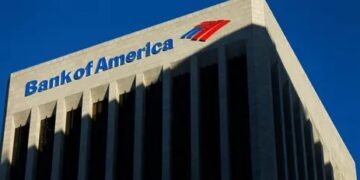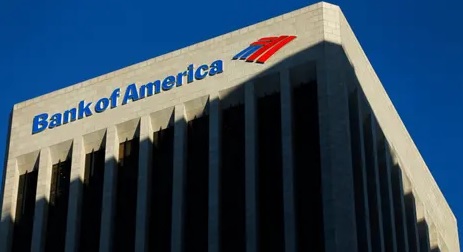By John Ikani
The Bank of America (BOA) has highlighted the need for Nigeria to consider a significant interest rate hike of up to 25 percent in order to effectively address the issue of soaring inflation.
The emphasis was made by BOA’s sub-Saharan Africa economist, Mr. Tatonga Rusike while speaking to Bloomberg on the subject matter.
Over the past year, the Central Bank of Nigeria (CBN) has been progressively increasing the country’s interest rates in an attempt to curb inflation.
During its recent Monetary Policy Committee (MPC) meeting in May 2023, the benchmark interest rate was raised by an additional 0.5 percent, reaching 18.50 percent from its previous level of 18.00 percent in March.
Despite these efforts, Nigeria’s inflation continues to surge, with a recorded rate of 22.41 percent in May 2023, compared to 22.22 percent in April 2023.
The National Bureau of Statistics (NBS) stated in its recent report that the rise in average prices of goods and services during that period was primarily driven by a significant increase of 24.82 percent in the food inflation rate.
BOA cautioned that, even with these measures in place, inflation could potentially accelerate to 30 percent by the end of the year.
This projection comes in the wake of President Bola Tinubu’s decision to abolish fuel subsidies, which cost approximately N4.3 trillion in the previous year, and the unification of the foreign exchange market, resulting in a 40 percent appreciation of the local currency against the Dollar, Pounds Sterling, and the Euro.
In response to this situation, Mr. Rusike emphasized the need for a monetary policy response from the central bank, including interest rate hikes.
He expressed this sentiment to the publication, stating, “That will require a monetary policy response from the central bank — effectively, interest-rate hikes.”
Moreover, BOA warned that these developments may lead foreign investors to exercise caution when considering investment opportunities in the country. Mr. Rusike stated, “If the negative real interest rate is not reversing, then it is less likely to see foreign inflows coming into the country.”
He further noted that while BOA would prefer to witness aggressive rate increases, the likelihood of such drastic measures being implemented is low.
According to the economist, in order to effectively combat inflation, a minimum increase of 700 basis points or 7.0 percent would be necessary.
He also highlighted that the government’s complacency in implementing reforms poses the greatest risk to Nigeria’s credit rating being raised.
In late May, President Tinubu, during his inauguration, expressed his commitment to reducing the country’s high-interest rates.
He pledged to work towards achieving a single-digit lending rate, which would facilitate increased investment in Nigeria and stimulate the performance of Africa’s largest economy.
In his address, President Tinubu emphasized the need for a comprehensive overhaul of monetary policy, including the establishment of a unified exchange rate.
He argued that redirecting funds away from arbitrage towards meaningful investments in infrastructure, equipment, and job creation would drive the real economy.
Furthermore, he called for interest rate reductions to encourage investment and boost consumer purchasing power, thereby sustaining the economy at a higher level.


































